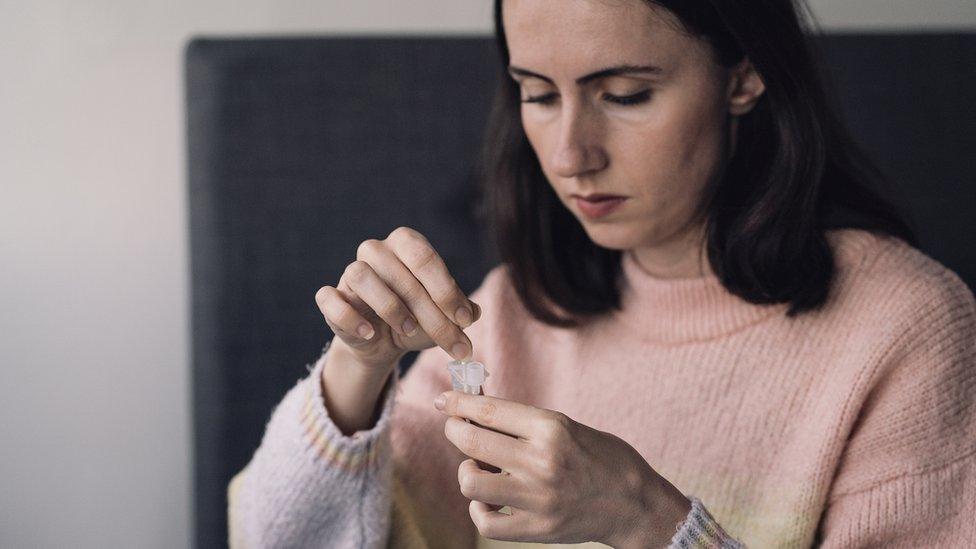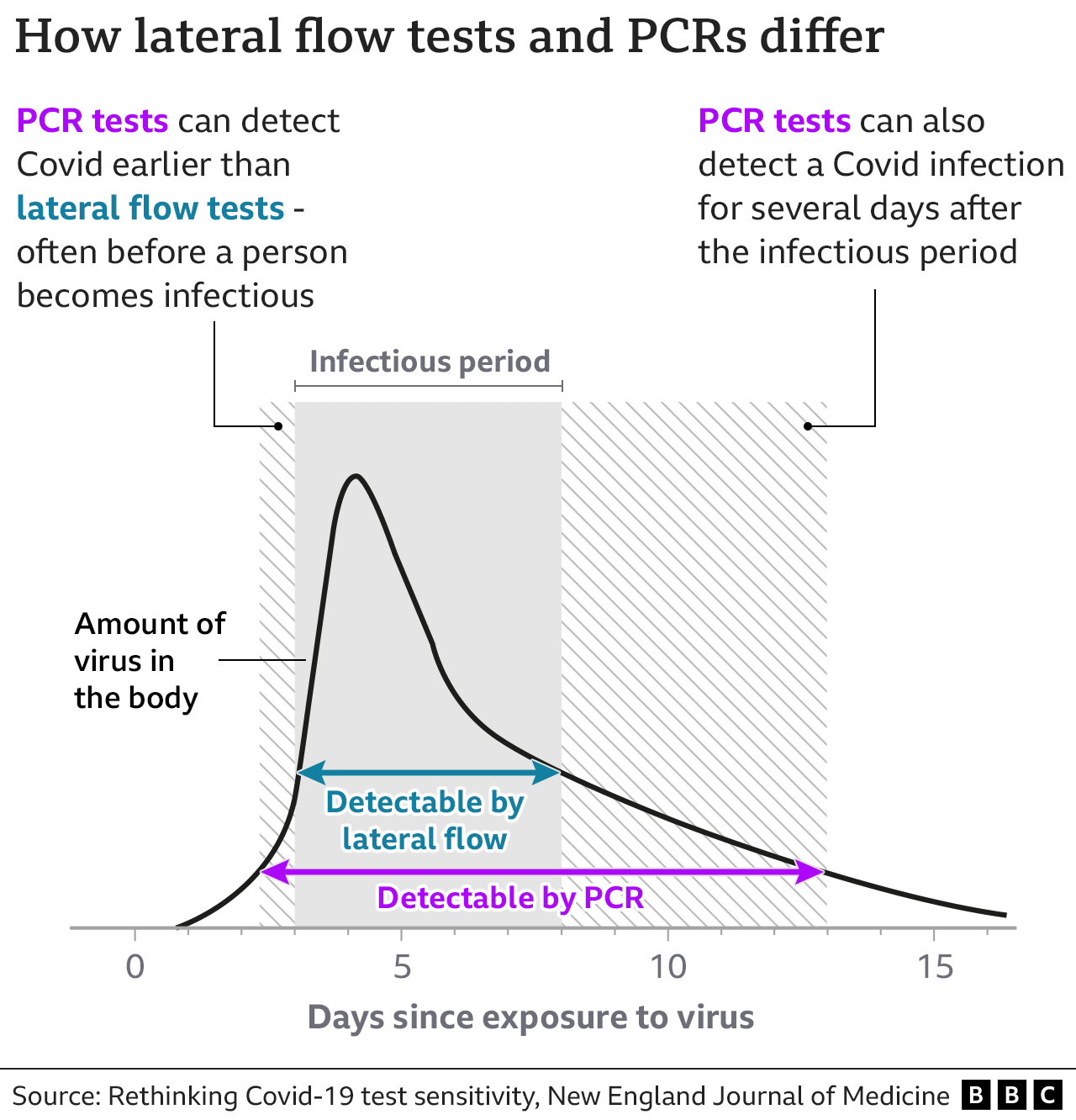Covid PCR tests end for asymptomatic cases in England
- Published
- comments

A positive lateral flow result can be taken as a confirmation that you have Covid if you have no symptoms, the UK Health Security Agency says
People without Covid symptoms no longer need a PCR test to confirm a positive lateral flow in England.
The change reflects the high prevalence of coronavirus in the community and the accuracy of rapid tests, the UK Health Security Agency (UKHSA) said., external
The surge in Omicron cases has seen many with positive lateral flow tests struggling to book a follow-up PCR.
The UK has capacity for more than 800,000 daily lab tests but moved closer to its limit in December.
On 23 December, a total of 622,948 PCR tests were taken and on 28 December the figure was 630,768, government figures show., external
And the demand grew further in the first week of 2022, reaching 698,502 PCR tests on 6 January and 613,496 on Sunday 9 January.
It is hoped the change will improve access to PCR tests for people with symptoms and for healthcare, transport and other key workers required to test regularly.
Those who have one of the three main Covid symptoms - high temperature, a new, continuous cough and a loss or change to the sense of smell or taste - must still get a PCR test, the government said.
On Monday, daily testing of 100,000 critical workers in industries such as food processing, transport and the border force began.
Reported coronavirus cases in the UK reached a 218,724 high last Tuesday but then fell, with the latest data showing 142,224 new infections on Monday.
Announcing the temporary halting of follow-up PCR tests, external on Wednesday, the UKHSA said lateral flows were more than 80% effective "at finding people with high viral loads who are most infectious".
And it added that, for every 10,000 lateral flow tests carried out, there were likely to be fewer than three false positive results.
The requirement was previously suspended between January and March 2021 at a time of high virus prevalence.
Those who test positive on a lateral flow but have no symptoms must still self-isolate for up to 10 days, but they can end quarantine if they receive two negative lateral flow test results, 24 hours apart, on days six and seven.
The changes, which have already been introduced in Wales, Northern Ireland and Scotland, do not apply to people who have symptoms. They will still need to book a follow up PCR test.

Lateral flow tests can be done at home, and show results in 20-30 minutes. PCR test swabs must be sent to a lab for analysis, with results provided in 24-48 hours
Health officials stress it is still important asymptomatic people register a positive lateral flow test on the government website so case numbers can be reflected accurately and contact tracing can take place.
There are some exemptions to the new rule.
People who receive Test and Trace financial support, those taking part in Covid research studies and about one million people in England eligible for new NHS treatments for Covid will all be asked to take a follow-up PCR.
On Monday, Prime Minister Boris Johnson said the government would "look at the science" on the possibility of cutting the minimum isolation period for people who tested positive, from seven days to five.
However, the possibility was not discussed by cabinet ministers on Tuesday, Downing Street has confirmed.
The PM's official spokesman said the government was "gathering the latest evidence" and keeping the issue under review to "make sure we have the right approach".
He said: "But what we're absolutely not doing is prejudging anything.
"The prime minister hasn't received formal advice either way yet. So, we'll await that and then make a decision."
The UKHSA, which is leading work on the issue along with the government's Covid taskforce based in the Cabinet Office, has now clarified the recommended self-isolation period in the US is five days and therefore shorter than in the UK.
It had previously said the isolation period was effectively the same in both countries.
The US Centers for Disease Control and Prevention cut the recommended isolation period there to five days in December.

HOW COVID EVOLVED LAST YEAR: What we learnt in 2021 about the pandemic
A POPULAR NEW YEAR'S RESOLUTION: How to eat healthily and save money

Related topics
- Published5 January 2022

- Published9 January 2022

- Published3 May 2022

- Published20 December 2023
